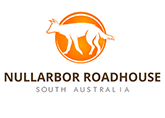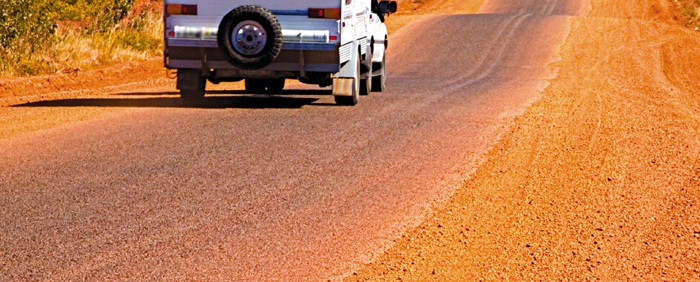If you’re planning on venturing across the Eyre Highway with a group of family members or friends, chances are you’re probably considering travelling in a caravan. Caravan travel is both efficient and practical: You’d be living out of your vehicles and you wouldn’t have to worry so much about where you’re going to stop over (as you’re already in it).
However, many caravans come and go here at the Nullarbor Roadhouse; our experience with them has led us to observe a few things we’d like to share with you, just to make sure that your caravan-travelling group is well-prepared for the long road trip ahead. Take note of these useful tips to eliminate mishaps and problems during the trip and, more importantly, so you can focus maximising your enjoyment!
The Caravan
As the caravan itself is both your group’s primary mode of transportation and where you will be spending most of your time, a great deal of planning and preparation is involved in the process, even before you take the first step towards your Nullarbor adventure. It’s not just about having fuel and carefully mapping out your stops from one gas station to another, for example; the caravan must also be checked for fluids such as oil, water, and brake fluid.
While the Nullarbor Roadhouse is a place where you can stop and get gas, other fluids may not be readily available in the various stopovers you would encounter. All of these fluids must be at appropriate levels to ensure the safety of your trip (and group).
As caravans can also be towed, a safety check should be performed at the link between the car and the caravan. The couplings and hitches must be guaranteed secure, and safety chains need double-checking. This prevents any accidents along the highway—you wouldn’t want the caravan to break off accidentally, left stranded in the middle of the highway.
Another piece of caravan safety advice is to make sure that the electrical cord is working and that your rear lights are functioning properly.
Inside the caravan, there should be nothing “loose”. Everything must be held down or securely closed and sealed. This includes fridges, doors, windows and other parts that could rattle or bounce during the journey. REMEMBER: Double check all gas outlets.
On the Road
Safety precautions must be taken while you’re on the road. Apart from the usual reminders (such as taking a fully-stocked first-aid kit, food, water, at least two spare tires and a well-stocked toolkit), safety also comes from driving responsibly, especially on the highway.
Be mindful of the road’s conditions, as well as your surroundings. A good rule of thumb is to not exceed 90 kilometres an hour if you’re towing a caravan early morning or after dusk. This prevents critical accidents in case of sudden swerving or braking. Animals are more active during these periods and may be scattered across the roads.
During the darker times of the day – or when visibility is poor in general – you may also consider stopping or slowing down. When it’s too dusty on the plain, stay slow and mindful of your surroundings. Going slow is also advised for creeks and waterways.
Another means of accident-prevention is to never drive tired. Fatigue can cause carelessness on the road, which is dangerous for your group and others on the road.
This is primarily why it’s important to stop at places like the Nullarbor Roadhouse — you need to recharge your strength and sleep instead of pushing onwards with a long drive to the next stop when you’re bone tired.
Heeding these tips and safety precautions ensures that your group’s Nullarbor journey is safe and enjoyable. Oh, and if you need to recharge and restock, don’t be shy – stop by the Nullarbor Roadhouse! Contact the Nullarbor Roadhouse today to plan your stopover.
References:
Australiasnorthwest.com, (2014). Caravan and Camping Tips – Australia’s North West. [online] [Accessed 10 Oct. 2014].
Visitnsw.com, (2014). Travel and holidays tips for caravan and camping | VisitNSW.com. [online] [Accessed 10 Oct. 2014].

